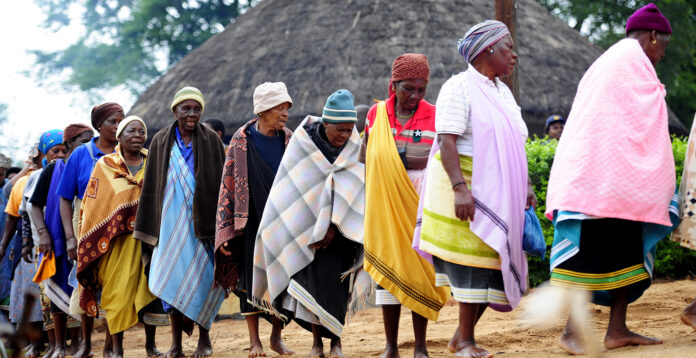It always bothers me when I encounter a text on social media that is so unintelligible you just know that the noble meaning it carried has been lost.
On closer observation, you always discover that it is a translation from Northern Sotho to English.
Then you check the original text and find a coherent message expressed profoundly in Setlokwa.
And, in frustration, you expel a stream of toxic expletives directed at Meta, the parent company, on Facebook and social media platforms.
But in truth, the problem is not really Facebook’s translation incompetence or incapability. On the contrary, Facebook’s translation AI tools are as effective as they can be.
The problem lies in the language! Northern Sotho has three main dialects that are sometimes so divergent in meaning and word construction that they should each be treated as a different language.
The three dialects are Sepedi, Setlokwa, and Selobedu/Khelobedu. Northern Sotho speakers from Botlokwa speak Setlokwa. Balobedu speak Selobedu.
People from GaSekhukhune, GaMphahlele, and several other areas south of Botlokwa speak Sepedi, the largest of these Northern Sotho dialects.
Batlokwa live just south of the Tropic of Capricorn along the N1 highway in the main, but there are substantial Batlokwa settlements in the Blouberg area and at the foot of the Soutpansberg among VhaVenda.
The villages that Batlokwa occupy are divided into four chieftaincies, representing divisions in the evolution of their traditional polity over centuries. Generally, Botlokwa refers to GaMachaka.
GaRamokgopa, which is located to the east, is where I come from. GaRamokgopa is also fondly known as Mokomene.
The third group of Batlokwa lives in Mohodi, GaManthata, just outside the Blouberg area.
The fourth group is at GaMa¬kgato in Blouberg.
Kgosi Machaka, Ramokgopa, Manthata, and Makgato are related, and their separate chieftaincies betray historical fissures in the original royal house.
However, the Batlokwa people from all three groupings remain united and have consistently coexisted peacefully, speaking Setlokwa.
Much farther east of Ga-Ramokgopa is where the Balobedu are found. GaModjadji. That chieftaincy is much better known in South Africa and beyond for their Rain Queen story.
There they speak Selobedu, which they pronounce Khelobedu.
It’s interesting to note that during my childhood in Mokomene, GaRamokgopa, we used to refer to the people in Bolobedu and the surrounding area as Bapedi.
That is perhaps evidence that Batlokwa are not Bapedi and do not regard themselves as such.
We connect with the Bapedi by referring to ourselves collectively as Northern Sothos, or Basotho ba Lebowa.
The Bapedi are one of the better recorded nations in SA history, as they are of the great Sekhukhune kingdom.
The translation inaccuracies relating to the Northern Sotho language on social media platforms are caused by the fact that most people in South Africa think all Northern Sotho-speaking people are Pedi people, which is not true.
In fact, even reputable institutions use North Sotho and Sepedi interchangeably. In truth, Northern Sotho-speaking people include Bapedi, Batlokwa, and Balobedu.
The latter two are so divergent from the former that they are clearly different languages. Setlokwa and Selobedu are not acknowledged in South Africa as standalone languages, but they are.
Consequently, these languages are not recognised in the development process of translation software.
The result of which is that when someone from Botlokwa or Bolobedu writes on social media in these languages, the AI translation software system understands their text to be in Sepedi.
Sometimes, noble messages read as if they are laden with profanity or written in anger, when they in fact carry a sweet message in Setlokwa that becomes lost in translation.
Linguistic and anthropological researchers need to acknowledge Setlokwa and Selobedu as separate languages from Sepedi.
That will allow software developers relying on the knowledge embodied in such research to develop suitable translation tools.
Setlokwa is particularly poetic and unique. Not acknowledging Setlokwa and Selobedu has meant that people who speak these languages on a daily basis must write Sepedi at school.
Batlokwa and Balobedu always have to adjust and speak Sepedi in all educational and public speeches that take place in North Sotho.
For example, when a Motlokwa individual speaks on the North Sotho public radio station, Thobela FM, they always have to adjust. The need to adjust is the unspoken capitulation to the bigger dialect, Sepedi.
Setlokwa, and most likely Selobedu, are spoken languages that continue to be passed down from generation to generation in verbal form. There are no books or newspapers publishing in Setlokwa.
Language policies in SA have always embodied astonishing indifference to language diversity within North Sotho.
When you say I speak North Sotho, the next question should be, which of its languages do you speak?
• Seshibedi is a PhD candidate in the Department of Political Sciences and International Relations at the University of Pretoria




